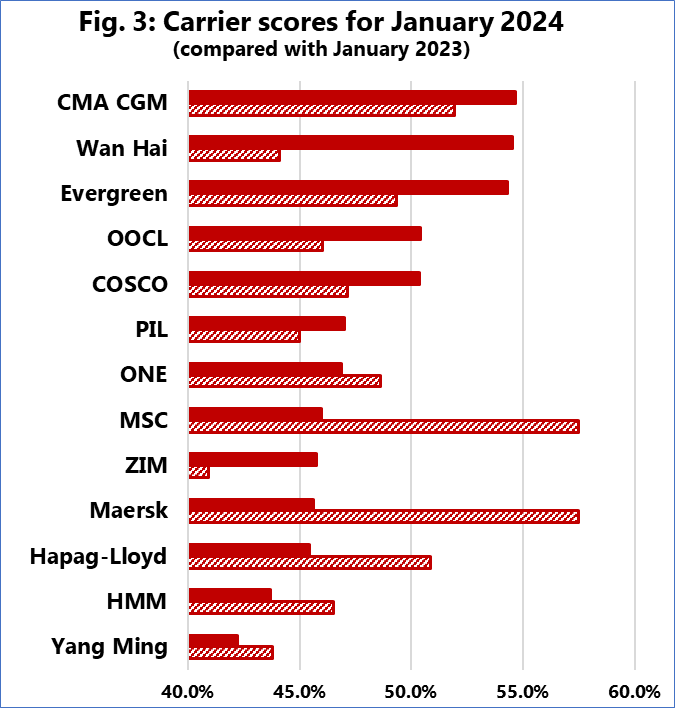According to Sea-Intelligence, global schedule reliability has decreased by 5.1 percentage points month-over-month (MoM) in January 2024 to 51.6 per cent as a result of the Red Sea crisis.
The marine data company has released issue 150 of the Global Liner Performance (GLP) report, which contains schedule reliability metrics through January 2024.
The report provides the global highlights of the GLP research, which looks at schedule reliability across 34 trade routes and more than 60 carriers.
READ: Red Sea causes 16 per cent rise in TEU Miles
Amidst the Red Sea crisis, global schedule reliability continued to fall, dropping by 5.1 percentage points MoM in January 2024, the same as in December 2023, to 51.6 per cent.
According to Sea-Intelligence, this drop means that the January 2024 score was the lowest since September 2022. On a Year-over-Year (YoY) level, schedule reliability in January 2024 was 0.8 percentage points lower than in January 2023.
Due to the round-of-Africa sailings, the average delay for LATE vessel arrivals deteriorated further, increasing by 0.59 days MoM to 6.01 days.
READ: Empty container moves rise 20 per cent
CMA CGM was the most reliable of the top 13 carriers in January 2024, with a schedule reliability of 54.7 per cent, followed by four other carriers above the 50 per cent level.
The remaining carriers had schedule reliability ranging from 40 per cent to 50 per cent, with Yang Ming having the lowest reliability at 42.2 per cent in January 2024.
In January 2024, the schedule reliability gap between the most and least dependable carriers was the smallest since February 2023.
Due to the present Red Sea situation, as well as major delays on round-of-Africa sailings, none of the top 13 carriers were able to increase schedule reliability on a MoM basis, with just seven carriers improving YoY in January 2024.
On 29 February, CMA CGM examined the situation in the Red Sea’s Southern Area, and the shifting conditions allowed it to proceed with transit on a case-by-case basis.










